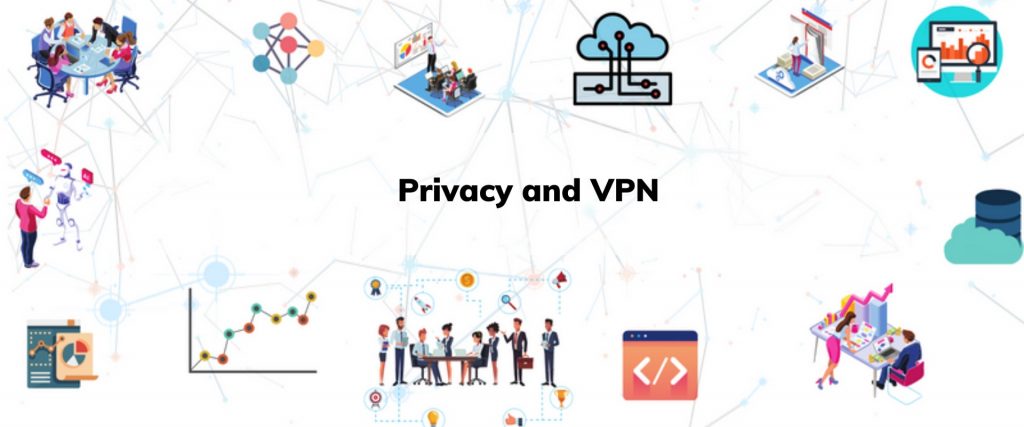What is privacy and why does it matter ?
Privacy is a basic right and necessary protection in the digital age to avoid victimization and manipulation. In much of the world, privacy is considered a basic human right. For example citizens in the European Union have the right to dignity. They respect an individual right to a private life, to act without coercion, and to maintain control of their personal information. These aspects are so valuable that they are considered an integral part of EU society.
Europe and most of the world have codified these rights into legislation largely due to the learnings of its past. Society can not have liberty without privacy. It can appear as a luxury, but it is important to the well-being of a free and just society.
Throughout history races and groups of people have been persecute due to their characteristics, affiliations, possessions, or beliefs. Governments, powerful business entities, criminals, and influential organizations have often sought to obtain private information so they can malign individuals and control or manipulate the masses.
What is a VPN, and Why would you need one ?
A VPN or Virtual Private Network allows you to create a secure connection to another network over the internet. VPNs can be use to access region-restricted websites, shield your browsing activity from prying eyes on public Wi-Fi and more.
What is a VPN and How does it help me ?
In very simple terms a VPN connects your PC, Smartphone, or tablet to another computer somewhere on the internet connection. So if that country and you can potentially access things that you couldn’t normally.
You can use a VPN to:
- Bypass geographic restrictions on websites or streaming audio and video.
- Watch streaming media like Netflix and Hulu.
- Protect yourself from snooping on untrustworthy Wi-Fi hotspots.
- Gain at least some anonymity online by hiding your true location.
- Protect yourself from being log while torrenting.
How do you get a VPN, and Which one should you choose?
Depending on your needs, you can either use a VPN from your workplace, create a VPN server yourself, or sometimes host one out of your house but realistically the vast majority of people are just looking for something to protect them while torrenting or help them watch some media online that they can’t seem to access from their country.
There are some VPNs:-
- ExpressVPN – This VPN server has the best combination of ease-of-use really fast servers and supports streaming media and torrenting, all for a cheap price.
- Tunnelbear – This VPN is really easy to use, is great for using at the coffee shop, and has a limited free tier. It is not good for torrenting or streaming media though.
- StrongVPN – not quite as easy to use as the others but you can definitely use them for torrenting and streaming media.
How does a VPN work?
When you connect your computer to a VPN, the computer acts as if it’s on the same local network as the VPN. All your network traffic is send over a secure connection to the VPN. because your computer behaves as if it’s on the network, this allows you to securely access local network resources even when you’re on the other side of the world. You’ll also be able to use the internet as if you were present at the VPN’s location which has some benefits if you are using public Wi-Fi or want to access geo-blocked websites.
Other example uses for VPNs
VPNs are a fairly simple tool but they can be used to do wide variety of things:-
- Access a business network while traveling – VPNs are frequently use by business travelers to access their business network including all its local network resources while on the road the local resources don’t have to be exposed directly to the internet which increases security.
- Access your home network while traveling – You can also set up your own VPN to access your own network while traveling This will allow you to access a Windows Remote desktop over the internet use local file shares and play games over the internet as if you were on the same LAN.
- Hide your browsing activity from local network and ISP – if you are using a public Wi-Fi connection your browsing activity on non-HTTPS websites is visible to everyone nearby if they know how to look. If you want to hide your browsing activity for a bit more privacy you can connect to a VPN. The local network will only see a single, secure VPN connection. All the other traffic will travel over the VPN connection. While this can be use to bypass connection-monitoring by your internet service provider, bear in mind that VPN providers may opt to log the traffic on their ends.
Written By: Abhishek Kumar
Reviewed By: Sayan Chatterjee
If you are Interested In Machine Learning You Can Check Machine Learning Internship Program
Also Check Other Technical And Non Technical Internship Programs

